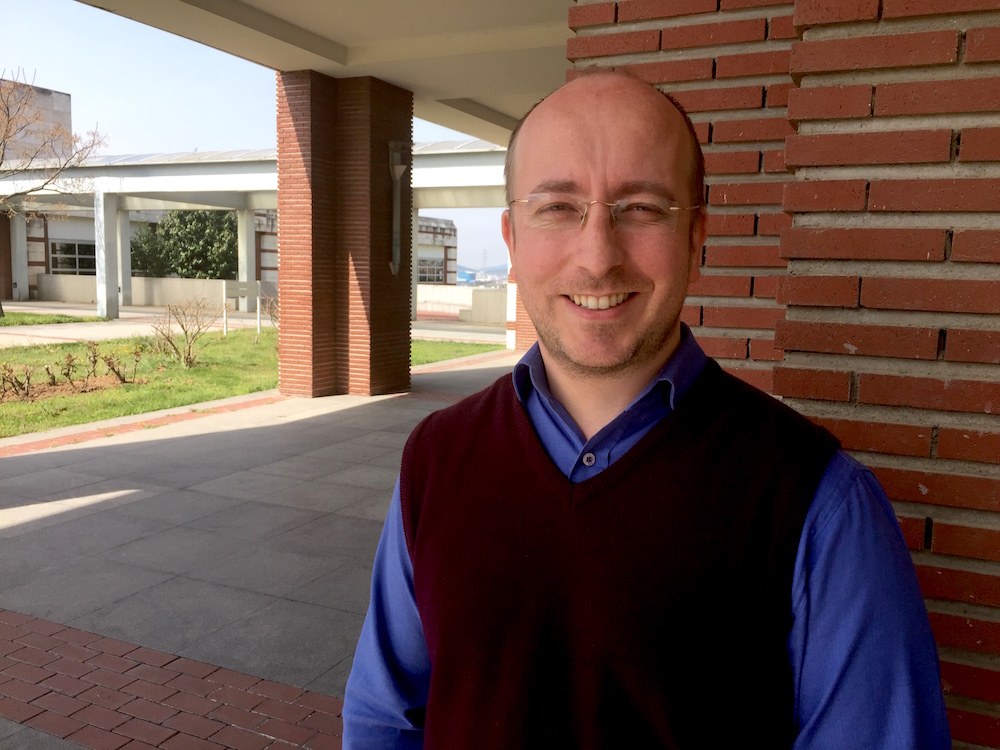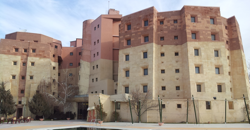
Language in Focus 2015
Review: Greg Grimaldi
Language in Focus is an annual conference organised by a committee of professors from Çukurova University in Adana, Turkey and one from the University of Silesia in Poland. This year’s event took place in the Kapadokya Lodge, a hotel near Nevşehir in Cappadocia, central Turkey, from 5-7 March, and brought together researchers and practitioners from over forty countries to watch and discuss presentations from such fields as discourse studies, corpus studies, CLIL, and SLA / ELT-related theories, psychology, and methodologies. Two teachers from the SU School of Languages were among the concurrent session presenters.
Three of the plenary speakers were Lydia White, Ayşe Akyel and Simon Borg. Lydia White presented research results from the field of Universal Grammar, which aims to investigate how children can work out how to use their native language so well when it appears they are not exposed to enough input to do so (the ‘underdetermination problem’), and whether there are any possible applications here for foreign language teaching. One suggestion was to explicitly highlight ungrammatical forms (provide ‘negative evidence’), as learners often acquire correct language without necessarily abandoning incorrect forms. Another was that we may need to focus on discourse as much as syntax (e.g. to decide when a subject is required or omitted in null-subject languages). One intriguing result was the accessibility hierarchy of relative clauses: the idea that learning their most ‘marked’ forms – i.e. the most complicated ones, including prepositions – allowed students to access (i.e. use correctly) the less difficult types without explicit instruction. However, this principle has so far only been evidenced for this particular grammatical structure.
 The other two professors both spoke about professional development. Ayşe Akyel read an article of hers about Turkish trainee teachers’ experiences of their school placement, during which they both taught lessons and carried out observation-based research. They saw their teaching practice as most useful in terms of learning about classroom dynamics, recognising their own strengths and weaknesses as teachers, and gaining confidence; difficulties included time management, class management and the brevity of the practicum. They found the experience of writing up research beneficial whilst the reticence of teachers to discuss their teaching was the most common obstacle. Professor Akyel advocates more inquiry-oriented teacher education, which she thought a challenge to implement in Turkey as apparently the Turkish Higher Education Council dictates 70% of the content of teacher training courses.
The other two professors both spoke about professional development. Ayşe Akyel read an article of hers about Turkish trainee teachers’ experiences of their school placement, during which they both taught lessons and carried out observation-based research. They saw their teaching practice as most useful in terms of learning about classroom dynamics, recognising their own strengths and weaknesses as teachers, and gaining confidence; difficulties included time management, class management and the brevity of the practicum. They found the experience of writing up research beneficial whilst the reticence of teachers to discuss their teaching was the most common obstacle. Professor Akyel advocates more inquiry-oriented teacher education, which she thought a challenge to implement in Turkey as apparently the Turkish Higher Education Council dictates 70% of the content of teacher training courses.
 Simon Borg’s message was that professional development was a duty and should be compulsory for all teachers; however, for that to happen a choice of worthwhile activities (/ actions / experiences) to engage in was a must. In short, he advocated ‘managed / controlled autonomy’ and obtaining evidence of the impact of professional development on the individual, teachers as a collective, students and the institution investing in it – a rather management-oriented perspective according to this listener’s taste. He pointed out that (e.g. language) learning theories generally apply to teacher learning too, and highlighted four possible axes or areas of development: subject, teaching, affect, and self-direction, as well as four basic teacher attitudes to professional development: the believer, the sceptic, the seeker and the agnostic… which are you?
Simon Borg’s message was that professional development was a duty and should be compulsory for all teachers; however, for that to happen a choice of worthwhile activities (/ actions / experiences) to engage in was a must. In short, he advocated ‘managed / controlled autonomy’ and obtaining evidence of the impact of professional development on the individual, teachers as a collective, students and the institution investing in it – a rather management-oriented perspective according to this listener’s taste. He pointed out that (e.g. language) learning theories generally apply to teacher learning too, and highlighted four possible axes or areas of development: subject, teaching, affect, and self-direction, as well as four basic teacher attitudes to professional development: the believer, the sceptic, the seeker and the agnostic… which are you?
Overall, it was a worthwhile conference to attend, in a distractingly scenic setting. Unfortunately, the steep conference fee (hotel accommodation included) put it out of reach of many potential participants; next year’s conference on the outskirts of Istanbul in Beylikdüzü is slightly less expensive but without the accommodation. Proposals for papers, posters or workshops are invited for submission by the end of October: see languageinfocus.org for more details.
